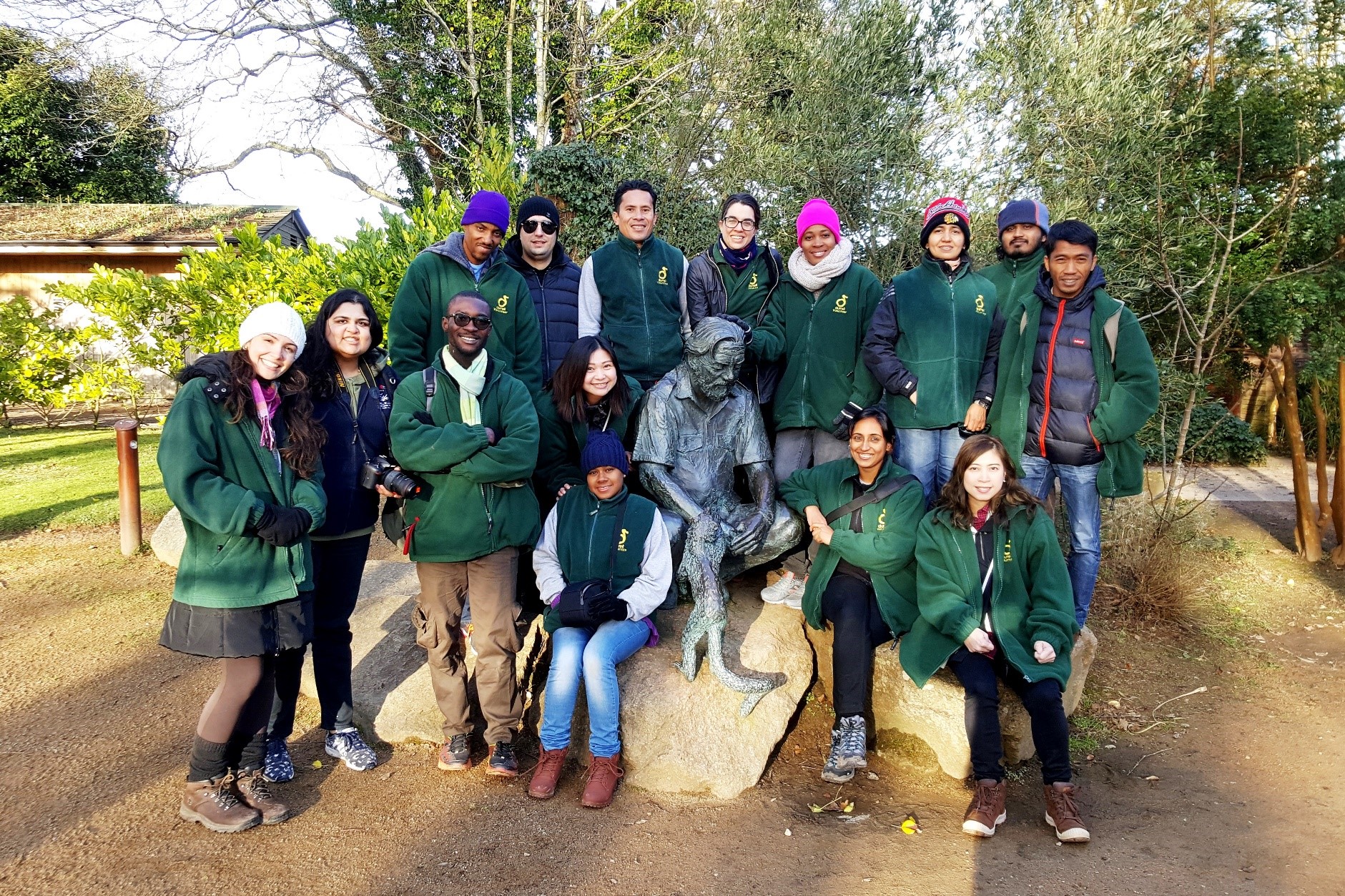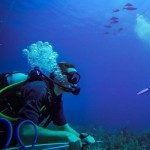
“Thus the trust would become a form of university…where people can get the correct training…and then take their talents back to conservation units throughout the world” Gerald Durrell, the Stationary Ark, 1976
Let me start with a question, what do a painted terrapin, a Nigerian leopard, a hyacinth macaw, a striped bass, a gharial and an Aldabra rail have in common? Yes, they are certainly all animals, but this mixed bag of species from all corners of the world have recently been united in another unexpected way, through stories of conservation optimism which have been shared at the Durrell Conservation Academy in 2018.
Between January and April this year, the small island of Jersey played host to the Durrell Endangered Species Management course. This is a bit of a mouthful, so we call it DESMAN for short. By a happy coincidence, a desman is also a small mammal species, but I digress. Every year, an international group of conservationists converge on the Channel Islands to participate in the DESMAN course, staying onsite at Jersey Zoo, the headquarters of Durrell Wildlife Conservation Trust. This year we welcomed fifteen students from twelve countries, and during their three-month stay they learned about a vast range of topics related to conservation, ranging from radio tracking to leadership, from genetics to human-wildlife conflict.
Every Friday, our students have been contributing to the Conservation Optimism movement, sharing positive stories from their own experiences and celebrating successes. All of the species I mentioned in the first paragraph have popped up, many acting as motivational case studies of species recovery and survival. For example, Joko has converted us all into massive fans of the painted terrapin, a critically endangered freshwater turtle which he is working to safeguard in Indonesia. During the course, over three hundred hatchlings were born in a captive facility, with the aim of future release into the wild. In similarly encouraging stories, Ella told us about the recovery of the Aldabra rail in the Seychelles, and Stephane highlighted the return of the striped bass to rivers in Quebec. We also saw a tantalising camera trap photo from Nigeria, as Charles shared the excitement of a leopard sighting in a forest from which the species had previously vanished. The positive stories were not limited to animals, and Sabah gave us an insight into exciting uses of new technology to engage people with conservation, through initiatives such as Skype a Scientist and nature-themed apps.
Through these examples and many others, positive messages have been passed around the DESMAN group. Furthermore, the students have encountered more encouraging conservation stories by learning about the species that Durrell has worked with. Durrell’s teams around the world have contributed to safeguarding many animals at the brink of extinction, including the Mauritius kestrel, orange-tailed skink, mountain chicken (which is in fact a frog, not a chicken!), pygmy hog and St. Lucia parrot to name a few. Prior to conservation interventions, all these species had been reduced to a handful of individuals in the wild. Durrell’s efforts highlight that there is always hope for conservation, and show that there can be cause for optimism even in seemingly desperate situations.
The DESMAN course itself represents an opportunity to create positive momentum for wildlife, bringing together dedicated conservationists from thousands of miles apart, sharing knowledge with each other and with Durrell. Hundreds of students have completed the course since its inception in the late 1980’s, and this year’s cohort perfectly encapsulates the diversity that is DESMAN’s great strength. From 2018’s group, spanning a dozen nations and many professions, have sprung a huge variety of reasons to be optimistic. Undoubtedly, all of the group will encounter obstacles during their future conservation work at home, with moments in which it is very hard to see a positive side. However, we hope that sparks of optimism will continue to drive our students forward, and we look forward to hearing fresh, motivational success stories as they apply newfound skills to their target species and habitats. As Gerald Durrell himself wrote, the motto of conservation should be ‘never say die’, and the terrapins, rails and leopards of DESMAN 2018 are proof of those words in action.
If you would like to know more about DESMAN 2019 or any of Durrell’s other conservation training courses, then please see the link for more information:


